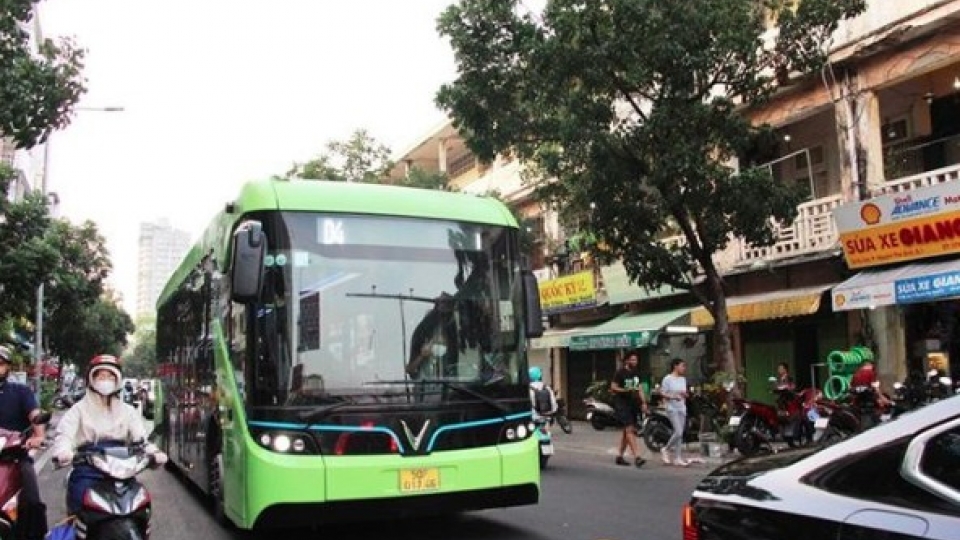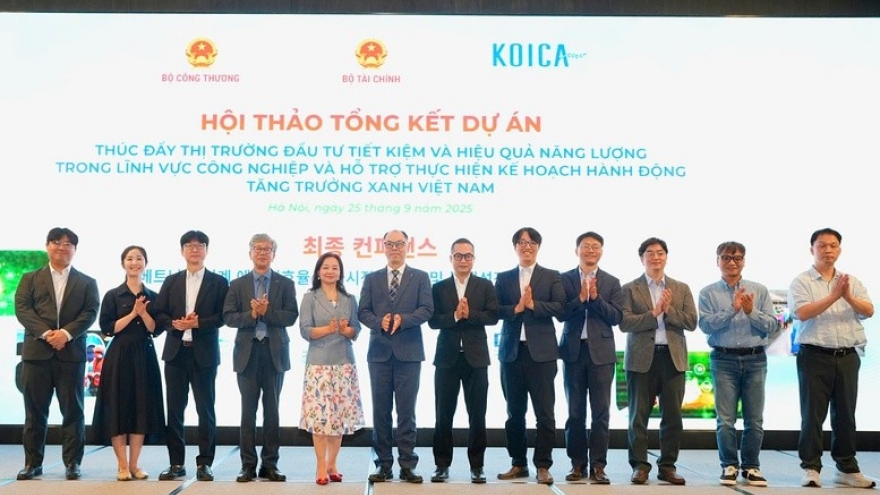Hanoi forum targets green energy infrastructure for smart cities
The Ministry of Agriculture and Environment hosted a forum on green energy and clean city development in Hanoi on November 7, gathering officials, scientists, businesses and international organisations to outline solutions for green energy adoption and sustainable urban planning.

Deputy Minister of Agriculture and Environment Le Cong Thanh, in his speech, said mounting global pressures from climate change, pollution, resource depletion and ecological imbalance have made green growth and clean energy transition a global trend.
Green energy is central to cutting greenhouse gases, ensuring energy security and driving Vietnam’s long-term pivot to a more sustainable energy system, he said.
In megacities like Hanoi, Ho Chi Minh City, Hai Phong and Da Nang, curbing vehicle exhaust, scaling clean energy infrastructure and embedding tougher environmental rules into urban planning form the backbone of “clean city” ambitions, he added.
Tran Hoai Trang, Deputy Director of the Electricity Authority under the Ministry of Industry and Trade, said the revised Power Development Plan VIII targets a just energy transition and aggressive renewable buildup, increasing their share to 28–36% by 2030 and 74–75% by 2050. Power-sector emissions are slated to hold at 197-199 million tonnes by 2030 before dropping to about 27 million tonnes by 2050, with a ceiling of 170 million tonnes if the Just Energy Transition Partnership (JETP) pledges are met in full.
The plan also calls for the construction of a smart grid capable of efficiently integrating renewable sources, plus accelerated adoption of wind, solar, biomass, hydrogen and green ammonia, while encouraging on-site power generation and consumption, including rooftop solar.
Nguyen Hung Dung, Vice Chairman and Secretary-General of the Vietnam Petroleum Association, said global innovation, finance and trade hubs require smart, low-carbon energy ecosystems - a trajectory already underway in advanced economies via liquefied natural gas (LNG), compressed natural gas (CNG), liquefied petroleum gas (LPG), green hydrogen and low-emission mobility.
Dung laid out five pillars to scale clean fuels and new energy: building transitional ecosystems around LNG and CNG backed by flexible pricing, tax breaks and infrastructure spending; funding research into green hydrogen, biofuels, carbon capture utilisation and storage (CCUS), and green refining; forging supply chains and delivery networks through public-private partnerhips and global tech transfers. He also called for public awareness campaigns and local allocation of land to integrate renewables into smart urban development.
Delegates discussed clean energy ecosystems, standardised fuel adoption, green tech use in transport, urban construction and management, and policy frameworks to speed the shift and back Vietnam’s net-zero 2050 pledge.
They urged ongoing regulatory changes, tighter emissions caps, incentives for clean energy uptake, deeper private capital in efficiency and renewables, plus broader industry-group coordination to link policymakers, businesses and the public, coupled with stepped-up outreach to mobilise society toward a low-carbon future.



